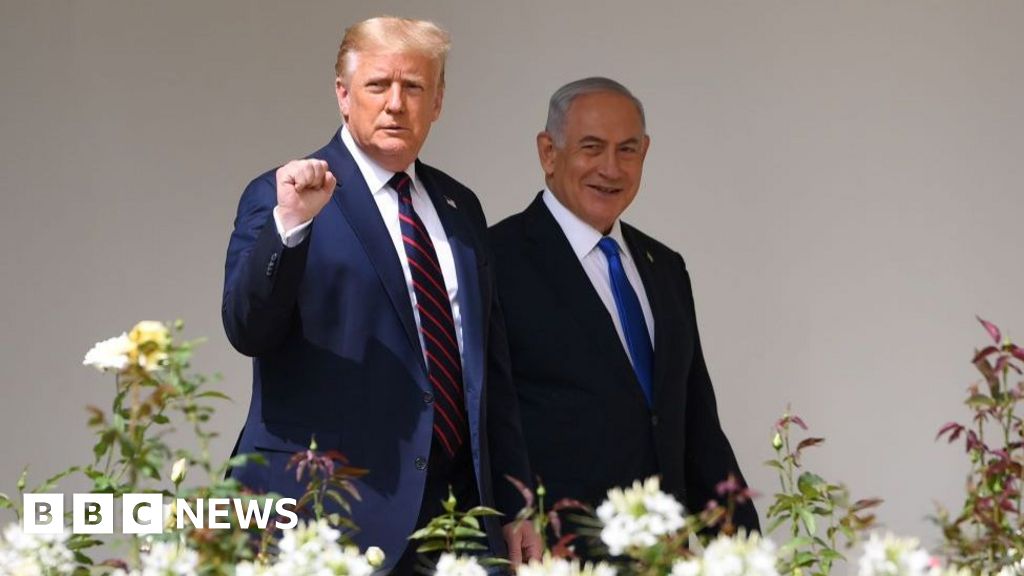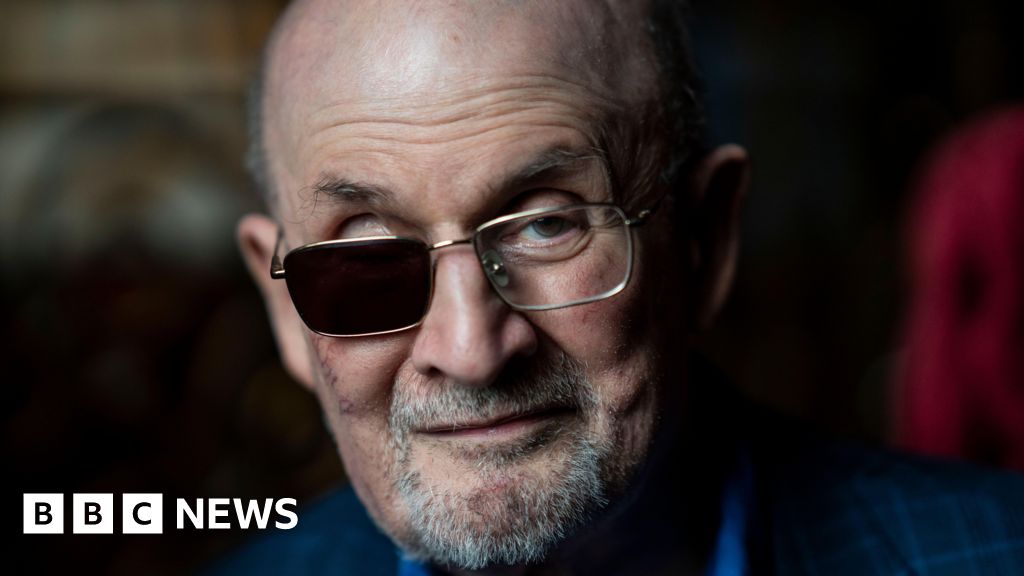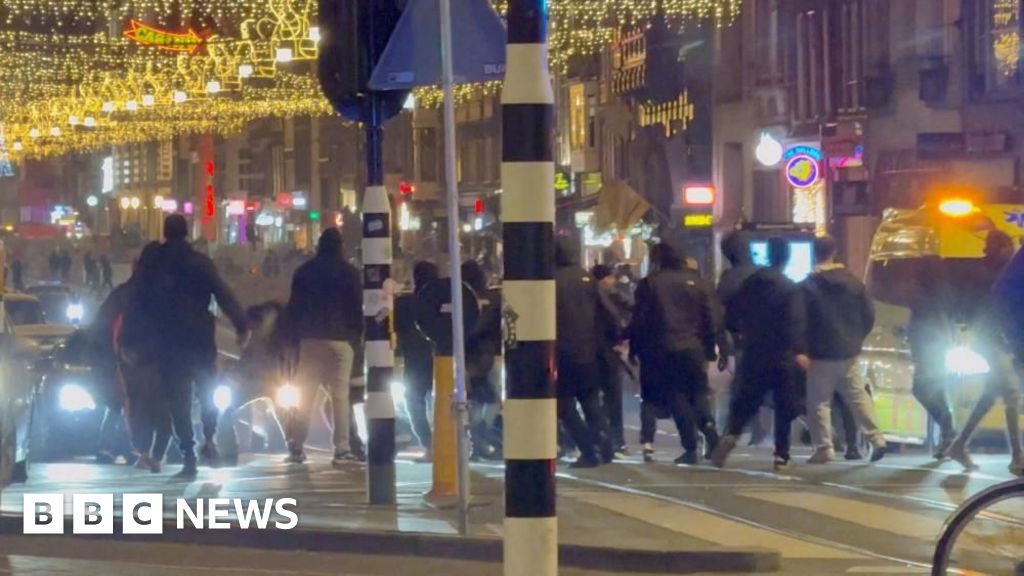ARTICLE AD BOX
Watch: Protesters face tear gas and water cannons - as MPs brawl in parliament - over a "Russian-style" bill
By Rayhan Demytrie & Paul Kirby
In Tbilisi and London
Thousands of protesters have returned to the centre of Georgia's capital, Tbilisi, hours after riot police broke up crowds angered by a controversial Russian-style law.
The new law would class non-government and media groups as "foreign agents" if they get more than 20% of their funding from abroad.
Police arrested 66 people overnight, including a Georgian opposition leader.
Zurab Japaridze suffered a serious injury after he was detained.
A public official who visited Mr Japaridze in detention said he had been hit by a baton during the arrest.
Authorities said 55 police were hurt when stones and petrol bombs were thrown at them. Some of the most arresting images of the night came when water cannon was sprayed at protesters waving EU flags.
Riot police eventually moved in to clear protesters from Rustaveli Avenue, the main thoroughfare outside parliament.
Crowds grew outside parliament again on Wednesday, as protesters sought to challenge the draft "foreign agents" law. Some 10,000 people had turned out by late afternoon and another 10 people were arrested.
Image source, Reuters
Image caption,Thousands of protesters gathered in the streets around parliament
Prime Minister Irakli Gharibashvili denounced the "stir" over the draft law, which went through its first reading inside parliament on Tuesday. Ruling party Georgian Dream maintains the legislation dates back to US legislation in the 1930s. The same argument was used by Russia after it passed a similar law in 2012.
Russia's law has since been expanded to suppress Western-funded NGOs, independent media, journalists and bloggers. Anyone identified as a foreign agent now has to highlight a foreign-agent label on their publication.
Many of the protesters in the centre of Tbilisi were students. "We think that our government is under Russian influence and it's very bad for our future," said Lizzie.
Opposition-supporting TV stations have also dubbed the proposed legislation as a "Russian law".
Georgia has applied to the European Union for candidate status and also aims to join Nato, but EU foreign policy chief Josep Borrell warned that the bill was "incompatible with EU values and standards".
Another student, Lia Chagovadze, said she and her friends were there to fight for Western values and freedom, while Nanuka Shakinovi said the protesters would not allow the government to stop Georgia's push to join the EU: "We are going to fight them and we will not stop until we win."
"Again and again they are trying everything to take us far away from the European Union, European values," said 30-year-old Luka Kimeridze.
Georgian Dream chairman Irakli Kobakhidze said criticism of the draft law as similar to Russia's own repressive legislation was misleading. "In the end, the stir will die out and the public will have transparency in the funding of NGOs," he said.
However, Eka Gigauri of Transparency International told the BBC that NGOs were already subject to 10 different laws and the finance ministry already had full access to accounts, funding and other information.
Georgia and Russia: The basics
- Pulled between the West and Russia: Georgia has sought to join Nato and the EU, but critics accuse current ruling party Georgian Dream of trying to return the country to Russia's influence
- Georgia was invaded by Russia in 2008: It came 17 years after it gained independence from the Soviet Union, an alliance of communist states that broke apart in 1991
- Russian forces occupy two breakaway regions of Georgia: South Ossetia and Abkhazia make up about 20% of Georgian territory
Political tensions in Georgia have been heightened by Russia's full-scale invasion of Ukraine, seen by many Georgians as a war of aggression by Moscow, and many thousands of Russians have fled there. However, the government in Tbilisi has adopted a neutral stance, refusing to openly back Ukraine or impose sanctions on Russia.
Speaking via video during a visit to New York, Georgian President Salome Zourabichvili voiced her support for the protesters: "I am by your side. Today you represent free Georgia. Georgia, which sees its future in Europe, will not allow anyone to take away this future."
She has vowed to veto the legislation, but Georgian Dream has enough votes to override the president's veto in parliament. The party has applied to the Council of Europe for its opinion.
The US embassy issued a statement describing Tuesday's vote in parliament as a "dark day for Georgia's democracy", while the chairman of Georgian Dream condemned the embassy's comment as "a dark day for the radical opposition and its supporters".
US state department spokesman Ned Price warned that the new law would "strike at some of the very rights that are central to the aspirations of the people of Georgia".
Passing the law would see Georgia join a list of undemocratic and authoritarian post-Soviet states such as Belarus, Tajikistan and Azerbaijan which have copied the Russian law on restricting the activities of NGOs.
Historically, the term "agent" in Russia and Georgia has the meaning of "spy" and "traitor", giving a negative connotation to the work done by civil society. It suggests they are acting in the interest of foreign forces rather than doing good for the country and society.
What most protesters and the country's opposition fear is that the adoption of the law would mark an end to Georgia's long-standing ambition to join the EU. More than 80% of Georgia's population supports Georgia's European perspective, which is also enshrined in the country's constitution.

 1 year ago
16
1 year ago
16








 English (US)
English (US)